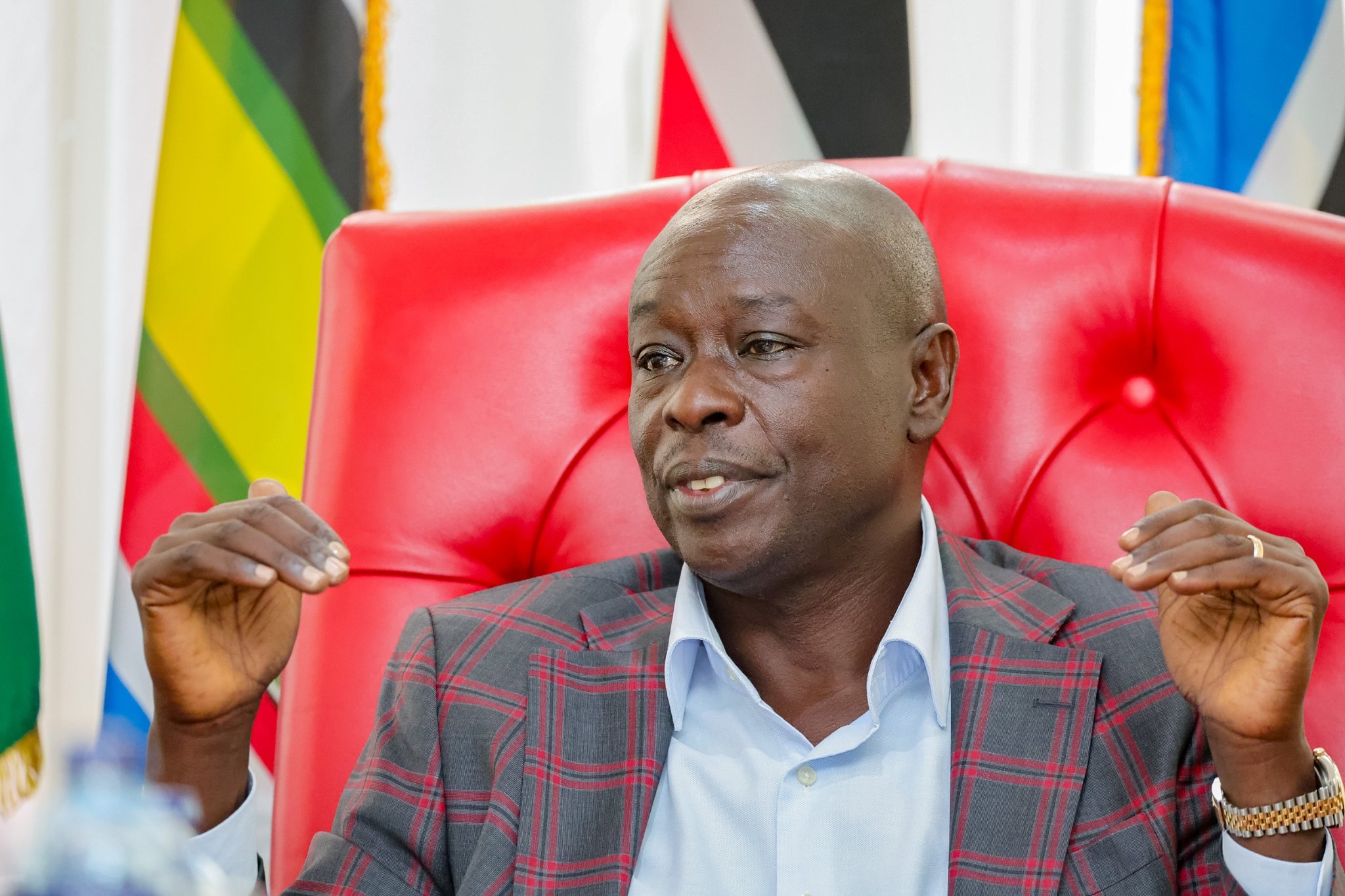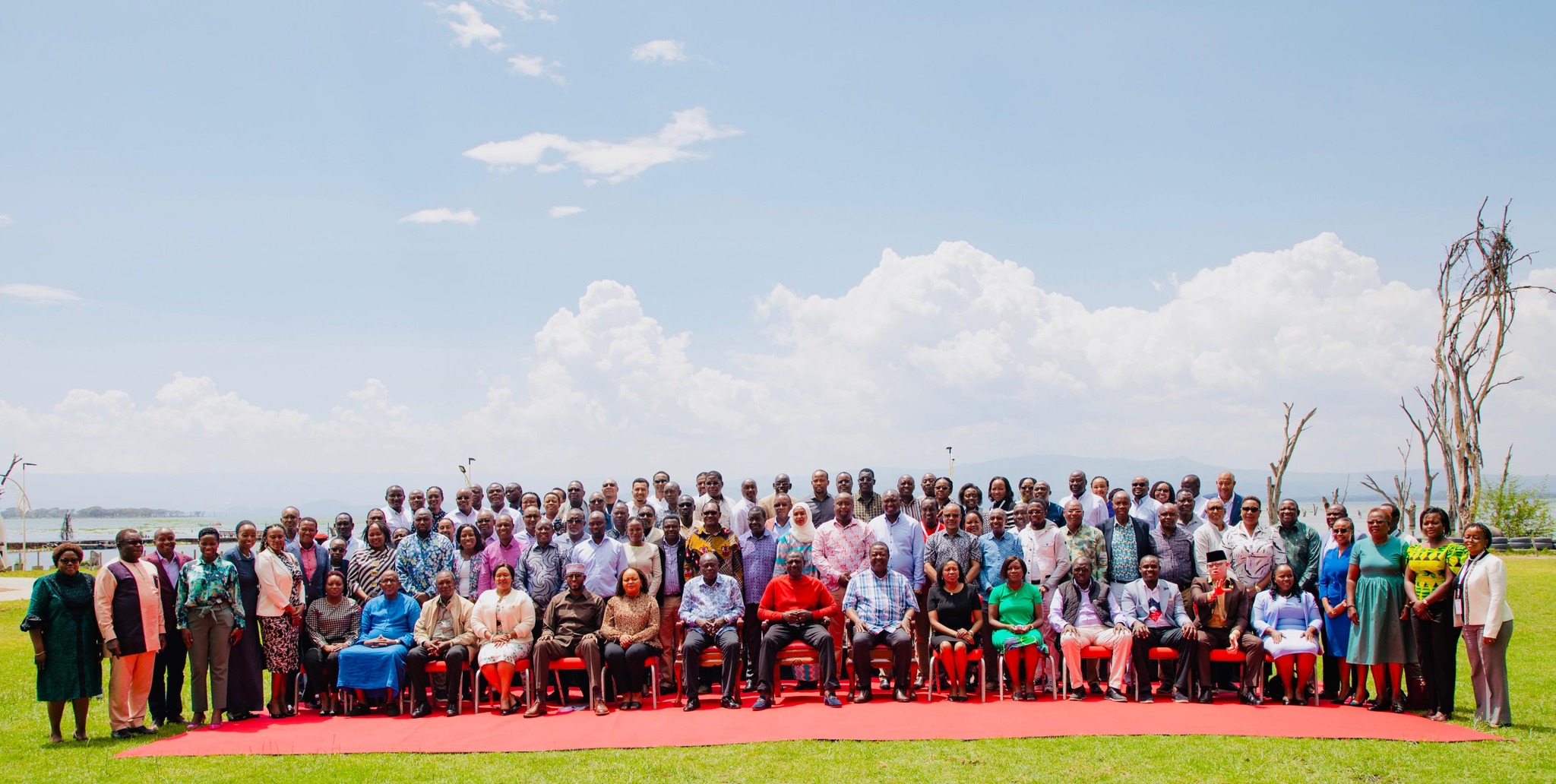The brutal British colonial government in Kenya had one simple rule called Taxation Without Representation which meant the colonial tyrants just imposed any tax they wanted any time they wanted it, and that is how they established the Native Hut Tax in 1901 in Kenya.
As Kenyans know by now William Ruto and his KK regime are following in those exact footsteps imposing taxes and levies without public consultation and that is why a lot of those bogus tax plans are stuck in the courts.
It is not just the colonial rule of Taxation Without Representation that William Ruto has embraced from the colonial regime, Ruto also wants to do the colonial plans of taxing Kenyans for what is rightfully theirs and for which they don’t need to pay taxes and that is why the KK government is introducing some crazy taxation called the Land Levy.
So if you own land in Kenya, the government is likely going to make sure you pay a Land Levy on your own land or you will lose that land.
The Colonial Hut Tax in Kenya has a terrible history and we are going to explain that but the biggest problem for the British was that peasant Kenyans never really used money and had no money to pay taxes, so the colonial government hired thugs to go invade their huts and demand the Hut Tax.

In fact, it was the Hut Tax that brought about the Nandi Resistance led by Koitalel arap Samoei in direct conflict and fight with the colonial government. The Nandi people’s land was needed by the British to set up some railway system but first, the Nandis to pay Hut Tax for their own homes.
Koitalel arap Samoei could not accept that and the fights between the Nandi resistance and the British colonial army became legendary because every time the British invaded Nandi areas they were losing their soldiers and Samoei and his soldiers were nowhere to be found. The colonial forces had no idea why they could not find any Nandi to kill. They could not comprehend Samoei’s war tactics.
The British gave up and then came the nutcase British Colonial police boss in Kenya named Richard Henry Meinertzhagen who came with a plan to invite Koitalel arap Samoei for a meeting so as to have a truce between the Nandis and the colonial government.

When Koitalel arap Samoei arrived on 19 October 1905, for the peace meeting proposed by the colonial government, he was killed in cold blood by the British soldiers who were there waiting for him and they cut off his head and sent it to England. Talk about ritual murderers. Why the heck did the British government need Samoei’s head after they murdered him? How long do the present British government want to keep Koitalel arap Samoei’s head? For what?
I was talking to Karimi, my son and I asked why the British want to keep the heads of people and leaders they kill and he told me France has 18,000 heads of Africans they killed and it is in a museum in Paris.
I asked him what was that all about and he told me to just look it up. And I did. I have no words. What level of barbarity is this? And it is there right now in 2024. They display it as fun and art to please French citizens. What a shame. And in this Black History Month, we condemn this as a criminal act against humanity. Shame on them again.
Here are our heads in France.

On the ground and in the land there are big issues to be sorted out. One is the bad history of land and housing taxes that have been around in Kenya since 1901.
In 1963, when Kenya became an independent country and more so after 2010 when through a national referendum Kenyans put in place a new people-centred constitution. Kenyans thought that was the end of the days and era of state-imposed taxes on what they owned, even little pieces of land. Ruto is now telling Kenyans we are back to 1901 and they can forget the 2010 constitution.
This week, the NLC commissioner Reginald Okumu told the National Assembly’s Committee on Lands that the imposition of a land levy would amount to double taxation.
“The proposal to impose land levy on freehold property will infringe on the provisions of the Urban Cities Areas and Cities Act. The Bill will therefore require the approval of the Senate because it touches on functions devolved to the counties,” he said.
Unlike leasehold, freehold land ownership grants individuals or entities the right to own land in perpetuity. This means that there are no time limitations or lease renewals required. Most ancestral lands in the country are freehold.
Part of the new Land Laws Amendment is to provide the elite power to simply grab any piece of land they want then determine the value of that land and pay the owner so the government grabs the land allegedly for development.
The bill vests upon the Cabinet Secretary, the mandate of handling compulsory land acquisition, eliminates conflict of interests likely to occur when one entity is involved in the valuation process and at the same time making compensation payments, and eliminates delay in acquiring land since the acquiring public body has direct control in making compensation payments as opposed to when funds were being transferred to the commission and establish the land acquisition committee to replace the land acquisition tribunal.
Today, the government atleast makes a small improvement from the colonial land laws put in place in1903.
At that time the colonial government simply grabbed any land they wanted and the owners couldn’t do anything. In Ruto’s land grabbing plan in the Land Laws Amendment Act Ruto is being a little clever by saying yes they will compensate the owners of the land they want to grab but they will send their own government employees to evaluate the price of the land.
The simple truth there which these people cannot hide is that government evaluators will value your land at the lowest price so that the government will get your land virtually for free.
In their submission before the National Assembly Lands Committee, NLC Vice Chairperson Gertrude Nguku cited Clause 107 of the Land Laws Amendment Bill which allows the National Government to determine the location of projects, approve the acquisition, determine the value, provide compensation funds, and make the payment.
Ruto’s Housing Levy (Tax) is completely worse than the Hut Tax where at least you were being asked to pay tax on your house but at least such a hut was there for you.
In the Housing Levy, Kenyans are being asked to pay a tax for a house they do not own but may have a chance to buy with big money 20 years from now, if the houses are actually built and if the Levy payer is still alive.
Has Ruto even ever thought of what happens to the Housing Levy of huge number of those who paid that money and died before they even had a chance to buy a house?
Here is a very informed commentary by Rasna Warah on how the Housing Levy as imposed by Ruto is the equivalent of the colonial Native Hut Tax.
Finance Act 2023 Reminiscent of Colonialists’ Hut Tax

BY RASNA WARAH JULY 3, 2023
A survey by Twaweza and the Centre for Fiscal Affairs shows that three-quarters of Kenyans were completely opposed to the Finance Bill 2023, which has now been passed into law and is being challenged in court.
Less than 2% of the 25,966 Kenyans who participated in the survey supported the Bill, while more than 90% of those surveyed rejected the raising of Value Added Tax (VAT) on fuel products from 8% to 16%, alongside the introduction of the housing tax. The proposal to increase excise tax on mobile money transfer services from 12% to 15% was opposed by 90% of the respondents.
In a democracy, the will of the people is paramount. The Constitution of Kenya 2010 dictates that sovereign power belongs to the people of Kenya. And the people have spoken (much as their parliamentary representatives who passed the law – or were coerced to pass the law – didn’t listen). They have said they reject the proposals in the new law because they will hurt them and the economy.
Yet a majority of parliamentarians, who are supposed to represent the people, unashamedly passed a Bill that the majority of Kenyans rejected loudly and clearly.
Their vote is a reflection of their contempt for the people of Kenya. No doubt the threats and bullying of parliamentarians by the Executive played some role in this massive betrayal. But parliamentarians should know that they are not accountable to the president; they are accountable to their constituents.

The Finance Act 2023 also has colonial undertones that should make Kenyans very nervous. “The levy to enable more Kenyans to own their own houses is morphing into something akin to the obnoxious colonial ‘hut tax’,” stated an editorial in the Daily Nation.
The tax that the newspaper is referring to is the Native Hut Tax, introduced in 1901, when the British wanted to consolidate their power over this land and its people. All huts used as a dwelling were expected to pay an annual tax.
The hut tax was introduced ostensibly to turn an economy that was barter-based into a cash economy. But it had more sinister motives. It forced thousands of indigenous people to migrate in search of paid work. This allowed the British to gain access to cheap labour.
To add insult to injury, these migrants were then forced to carry a kipande (pass) which was used to monitor their movements and keep track of their employment histories. Those who could not pay the tax were used as free labour on roads and other infrastructure. The ultimate aim was to colonise the people and their land. How the colonisers imposed taxes on people after stealing their land is one of the biggest heists of the 20th century.
The British forcibly displaced the indigenous populations through the establishment of so-called “African reserves” where each ethnic group was expected to live and eke out a living separately. Furthermore, Africans were forbidden from growing cash crops. Those who grew maize and other staple foods were forced to sell them to marketing boards at a set price (some of these boards remain in existence to this day, and have continued to exploit and rob farmers, as has been witnessed in various recent scandals).
Just as we are being told that the additional taxes proposed in the Finance Act will bring “development” to Kenya, the colonisers who grabbed indigenous people’s land said they were here to protect the interests of the “natives” who would apparently benefit from being colonised.
They were on a “civilizing mission” that would bring modern education and infrastructure, in addition to Christianity, to “backward” people. Of course, we now know that the real aim was the plunder and control of the land and its people for the benefit of the British Empire, colonial administrators and white settlers.
As a form of “indirect rule”, the colonialists co-opted local chiefs whose primary responsibility was to recruit labour and to collect taxes. The “home guards” – as the loyalist chiefs and specially-appointed agents who were in the service of the British were known – were rewarded with plots of land, trade licences and tax exemptions.
When Kenya gained independence, the former home guards became the biggest beneficiaries of land left behind by the departing British. Funded resettlement schemes were manipulated in their favour, and many dispossessed Kenyans found that independence did not result in freedom from want.
The new elite class of post-colonial rulers who had benefitted from the colonial system decided to continue with the plunder and exploitation of their own people. The Kenya Land and Freedom Army (christened Mau Mau by the British), which had struggled to regain land from the colonialists, was outlawed and its members found themselves either landless or forced to eke out a dehumanising existence in slums.
In essence, the departing British colonisers never left – they left their agents behind who could be relied on not to disrupt Britain’s hold on its former colony. As former Chief Justice, Dr. Willy Mutunga, told me recently during an interview that Kenya is ruled by “neocolonials” who continue to be agents of foreign interest (many believe the 2023 Finance Act will only benefit the International Monetary Fund, which they believe authored parts of it).
Going by its punitive provisions, the Finance Act 2023 was drafted for the benefit of the minority, not the majority (that’s why there are tax exemptions for helicopters, of all things!) It will kill industry, impoverish mama mbogas and so-called “hustlers”, and cause even more hardship to people who are already struggling. Maybe this is what Kenya Kwanza intended – a citizenry that is so disempowered, dispossessed and impoverished that it will be easier to control and exploit, colonial style.
Thankfully, many Kenyans are now seeing that many of the promises made by Kenya Kwanza leaders before the last election were false.








